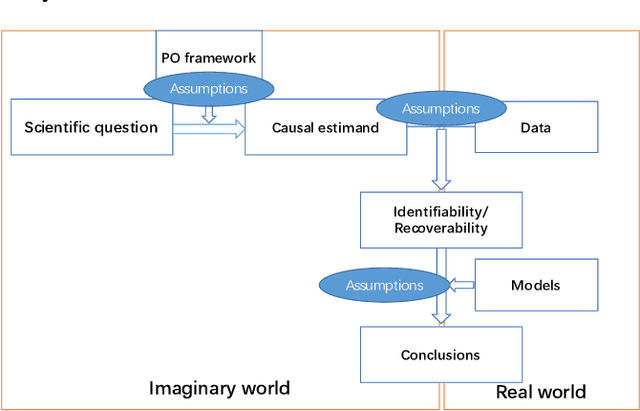Causal Analysis Framework for Recommendation
Paper and Code
Jan 18, 2022

Recently, recommendation based on causal inference has gained much attention in the industrial community. The introduction of causal techniques into recommender systems (RS) has brought great development to this field and has gradually become a trend. However, a unified causal analysis framework has not been established yet. On one hand, the existing causal methods in RS lack a clear causal and mathematical formalization on the scientific questions of interest. Many confusions need to be clarified: what exactly is being estimated, for what purpose, in which scenario, by which technique, and under what plausible assumptions. On the other hand, technically speaking, the existence of various biases is the main obstacle to drawing causal conclusions from observed data. Yet, formal definitions of the biases in RS are still not clear. Both of the limitations greatly hinder the development of RS. In this paper, we attempt to give a causal analysis framework to accommodate different scenarios in RS, thereby providing a principled and rigorous operational guideline for causal recommendation. We first propose a step-by-step guideline on how to clarify and investigate problems in RS using causal concepts. Then, we provide a new taxonomy and give a formal definition of various biases in RS from the perspective of violating what assumptions are adopted in standard causal analysis. Finally, we find that many problems in RS can be well formalized into a few scenarios using the proposed causal analysis framework.
 Add to Chrome
Add to Chrome Add to Firefox
Add to Firefox Add to Edge
Add to Edge